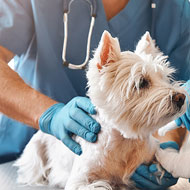
Government has granted key worker status by sector rather than profession.
The RCVS and the BVA have released a joint statement regarding government guidance about who qualifies as 'key workers' in relation to the closure of schools.
The RCVS/BVA statement, which is published in full below, is intended to help veterinary surgeons decide whether or not they can claim ‘key worker’ status and ask for their children to continue to be taken into schools. It reminds veterinary surgeons to consider the wider societal picture, and ensure that they only claim ‘key worker’ status if absolutely necessary.
The statement in full is as follows:
Veterinary surgeons as key workers in relation to school closures
RCVS and BVA appreciate that veterinary surgeons will feel a great deal of uncertainty at the present time, and that many will be facing considerable difficulties due to the closure of schools for most pupils.
The official government advice can be found here: https://www.gov.uk/government/publications/coronavirus-covid-19-maintaining-educational-provision/guidance-for-schools-colleges-and-local-authorities-on-maintaining-educational-provision
The guidance emphasises that if children can be at home then they should be, in order to help to prevent the virus from spreading.
The government has granted key worker status by sector rather than profession. Some veterinary work will definitely fall into the ‘key worker’ category. RCVS and BVA are therefore providing some additional advice below, following consultation with the UK Chief Veterinary Officer.
Vets carrying out work linked to food production
Veterinary surgeons working in food production from ‘farm to fork’ are considered to be key workers. This includes:
- Farm vets
- Official Veterinarians working in the food chain, including abattoir and other related inspection and certification work.
Vets working in emergency care
The responsibility of the veterinary surgeon to take steps to provide 24-hour emergency first aid and pain relief to animals according to their skills and the specific situation continues, and veterinary practices will need to continue to carry out this work. It is important that animal owners are able to focus on their own health, and not need to worry about their pets. Veterinary surgeons who are providing this essential work can be considered key workers.
Other companion animal practice work
In light of the Government guidance published on 19 March it is not clear that veterinary surgeons working in companion animal practice can be considered key workers. Veterinary surgeons should consider the possibility of reputational damage to the profession if vets doing work which could be regarded as non-essential claim key worker status at this time, given that we are facing a public health emergency. Anyone doing so must be confident that their claim to key worker status is defensible.
Practices may need to rationalise their work and ultimately this must be a decision for individual veterinary surgeons and veterinary practices.
Summary
At this time the provision of public health and the maintenance of food production need to take priority, and veterinary surgeons working in these areas should be considered key workers.
Veterinary surgeons working in emergency care can also be considered key workers. This will not apply to every veterinary surgeon in clinical practice, and practices may need to consider rationalising their services to achieve this.



 The Veterinary Medicines Directorate (VMD) is inviting applications from veterinary students to attend a one-week extramural studies (EMS) placement in July 2026.
The Veterinary Medicines Directorate (VMD) is inviting applications from veterinary students to attend a one-week extramural studies (EMS) placement in July 2026.